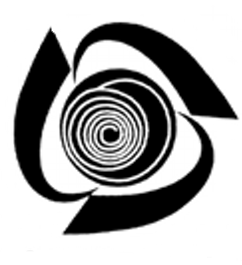You are here
What is CACHE?
CACHE, which stands for Computer Aids for Chemical Engineering, is a 501(c)(3) not-for-profit organization whose purpose is to promote cooperation among universities, industry and government in the development and distribution of computer-related and/or technology-based educational aids for the chemical engineering profession.
CACHE is a pioneering initiative committed to revolutionizing chemical engineering education worldwide. Established in 1969, CACHE is a non-profit staffed by Chemical Engineering volunteers, and has been at the forefront of developing innovative computer-based tools and resources that enhance learning, research, and collaboration within the field.
Mission Statement
At CACHE, our mission is to bridge the gap between theory and practice in chemical engineering education. We aim to equip students, educators, and researchers with cutting-edge computational tools and simulations to foster a deeper understanding of complex chemical processes and phenomena.
Creation of the CACHE Corporation
During the 1960s the rapid growth of computer technology challenged educators to develop new methods of meshing the computer with the teaching of chemical engineering. In spite of many significant contributions to program development, the transferability of computer codes, even those written in FORTRAN, was minimal. Because of the disorganized state of university-developed codes for chemical engineering, fourteen chemical engineering educators met in 1969 to form the CACHE Committee. The CACHE Committee was initially sponsored by the Commission on Education of the National Academy of Engineering and funded by the National Science Foundation. In 1975, after several successful projects had been completed, CACHE was incorporated as a 501(c)(3) not-for-profit corporation in Massachusetts to serve as the administrative umbrella for the consortium activities. A definitive archival account of the first 25 years of CACHE (1969-1994) is available here: "History of CACHE and its Evolution"
What We Offer
- Interactive Simulations: Experience realistic simulations that simulate real-world chemical engineering scenarios, helping learners grasp theoretical concepts in a practical manner.
- Virtual Unit Operations Laboratories: Our virtual labs provide a risk-free environment for students to experiment, analyze data, and troubleshoot, cultivating essential skills for their future careers.
- Teaching Resource Library: Access a comprehensive library of educational materials, including textbooks, lectures, case studies, and multimedia resources, to enrich your learning journey.
- Community Collaboration: Join a thriving community of chemical engineering enthusiasts, where ideas are shared, questions are answered, and collaborations are formed.
Contribution to the Profession
- Helping Faculty Teach Chemical Engineering: CACHE actively supports chemical engineering faculty in implementing effective teaching methods through curated materials and computational aids.
- Assisting Students in Learning Chemical Engineering: Our resources enable students to engage actively in their learning process, developing practical skills that are crucial for their success.
- Maintaining a Teaching Resource Center: CACHE houses a curated collection of materials for all core courses, designed to empower faculty to teach and implement active learning strategies.
- Emphasis on Computational Aids: During challenging COVID semesters, CACHE's computational aids played a vital role in facilitating remote learning and ensuring the continuity of education.
Historical Accomplishments
- Polymath: CACHE played a key role in the development of Polymath software, improving the way chemical engineering problems are solved.
- Facilitating Academic Simulators: CACHE has been instrumental in making simulators accessible to the academic community, allowing students to gain practical experience.
Recent Accomplishments
- Educational Books: CACHE has supported the development of books, such as Learn Aspen in 24 hours by Tom Adams, empowering students with essential software skills.
- Faculty Grants: Over the last three years, CACHE has distributed over $30,000 to faculty to develop new educational modules, fostering innovation in chemical engineering education.
- Sponsor of Conferences: CACHE actively sponsors various conferences with an educational component, including workshops designed to teach faculty and graduate students about the latest advancements in the field.
- FOCAPO/CPC - Foundations of Computer Aided Process Operations/Chemical Process Control (every 5 years)
- FOCAPD - Foundations of Computer Aided Process Design (every 5 years)
- FOMMS - Foundations of Molecular Modeling and Simulation (every 3 years)
- FOSBE - Foundations of Systems Biology in Engineering (jointly organized by CACHE and IFAC, led by CACHE every 3 years)
- FOPAM – Foundations of Process Analytics and Machine Learning (every 3 years)
- Travel Awards for Graduate Students: CACHE offers generous travel awards, amounting to over $40,000 in the last three years, to encourage graduate student participation in conferences and networking opportunities.
- Awards for Best Posters: Recognizing excellence in research and presentation, CACHE presents awards for the best posters presented at conferences.
Future Initiatives
- Industrial datasets – Making curated sets available to faculty for use in process analytics and machine learning.
- Molecular Modeling – Working with leading experts to develop curated best practices and teaching materials on how to use quantum chemistry, molecular simulation and machine learning.
Theme by Danetsoft and Danang Probo Sayekti inspired by Maksimer



